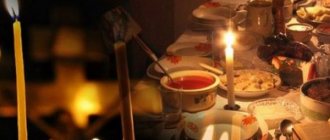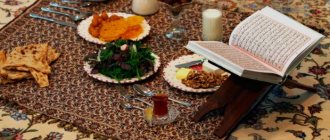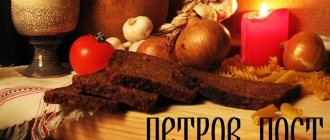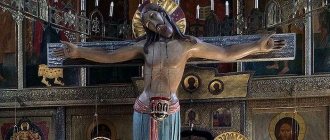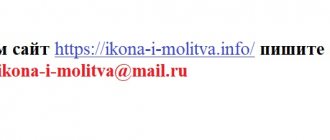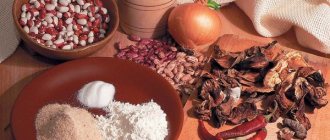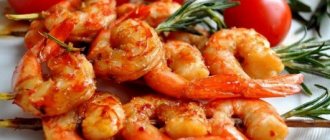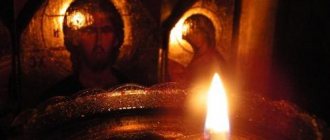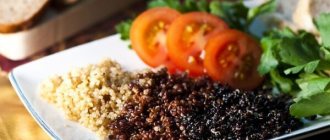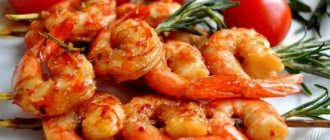Fasting is a time of abstaining from eating food of animal origin and spiritual cleansing of a person (visiting temples and reading prayers, refraining from quarrels and irritability). This period is accompanied by a refusal of all entertainment: visiting cinemas, watching entertainment programs, listening to cheerful music, going on visits, etc.
It begins on Monday, seven weeks before Easter and ends on Saturday, before this great holiday. In 2021 it lasts from March 15 to May 1 (inclusive).
What can you eat during Lent: list of products
Plant foods and dishes made from them are ideal for a Lenten table. In addition, cereals make up an important part of the diet. Legumes, nuts, mushrooms, herbs, flour products and some types of sweets will help saturate the body. During Lent you can add to your menu:
- Cereal products
- buckwheat, rice, semolina, oatmeal, barley and wheat groats. Porridge contains a lot of carbohydrates, so this food quickly fills you up. In addition, all cereals contain a set of microelements and vitamins. - Fruits and vegetables.
In this category, any fruit is acceptable without restrictions. You can prepare dishes from potatoes, beets, turnips, carrots, pumpkins, cabbage, corn, cucumbers, onions, garlic, and tomatoes. Sweet fruits can easily replace dessert. Bananas, oranges, apples, pears, pomegranates are very tasty and healthy. - Mushrooms
are considered a satisfying food, quite capable of replacing meat. During the fasting period, you can eat oyster mushrooms, champignons, dry and frozen forest mushrooms. These products contain important amino acids, vitamins and minerals. - Legumes.
In stores you can easily find beans, peas, lentils, and chickpeas. These products are good because they contain a lot of vegetable protein. - Nuts.
Any are acceptable: peanuts, hazelnuts, almonds, cashews. They can be supplemented with pumpkin and sunflower seeds. These products give you a feeling of satiety and contain many substances beneficial to the body. - Dried fruits.
By the beginning of Lent, you can stock up on prunes, dried apricots, raisins, figs, and dates. Compote made from dried fruits will be an excellent vitamin-rich dessert. Nuts and dried fruits can also be added to porridge and salads. - Pasta.
All of them quickly give you a feeling of fullness. Preference should be given to those products that do not contain egg yolk. - Bread and pastries.
This same group of products can include bread made from rye flour, crispbread, biscuits, and crackers. Baking should be without eggs and milk.
Vegetable oil (all types) and herbs will be an excellent addition to any dish. An important part of the menu during Lent consists of pickles and fermented foods. Kozinaki, halva, and jam are acceptable as sweets. However, their intake during fasting should still be limited, since these products are considered a delicacy.
Example of a Lenten menu
Sample menu (suitable for laity from the second to the sixth week)
Monday
- Breakfast – smoothie made from almond milk and dried fruits.
- Lunch - vegetable salad, rye bread, fresh berry juice.
- Dinner – vegetable smoothie.
Tuesday
- Breakfast – pearl barley porridge, sliced vegetables, rosehip tea.
- Lunch – pilaf with chickpeas, jelly.
- Dinner – mashed potato cutlet, warm compote.
Wednesday
- Breakfast – almond milk smoothie with pear.
- Lunch – sliced vegetables, lean oatmeal cookies, lingonberry juice.
- Dinner – compote with dried fruits.
Thursday
- Breakfast - millet porridge, or corn porridge, nuts, fireweed.
- Lunch – vermicelli with mushrooms, squash caviar, Lenten pastries with mint tea.
- Dinner – soup with chickpeas and lemon, tea with rose hips.
Friday
- Breakfast – muesli with compote.
- Lunch – sliced vegetables with rye sandwiches with hummus
- Dinner – smoothie with spinach.
Saturday
- Breakfast – buckwheat porridge, chicory.
- Lunch – boiled potatoes with mushrooms, beet caviar, jelly
- Dinner – fruit salad, Lenten cookies, hibiscus tea.
Sunday
- Breakfast – barley porridge with vegetable oil, apple and celery smoothie
- Lunch – vegetable puree soup with croutons, a sandwich with avocado spread, chamomile tea with jam.
- Dinner – Ivan tea, unleavened oatmeal pancakes, honey.
What drinks can you drink?
A drink like tea is perfect for fasting. You can use black and green varieties. In addition, tea is prepared based on fruits and herbs:
- ginger;
- rosehip;
- raspberries;
- lemon balm;
- mint;
- oregano;
- St. John's wort.
Among hot drinks, sbiten based on honey and spices is also popular. You can make fruit smoothies with coconut milk. Fruit drinks, jelly, compotes, and homemade lemonade allowed during Lent are tasty and healthy.
Lenten recipes are simple and tasty
We bring to your attention recipes for lean dishes that even a novice cook can handle.
Lenten pancakes
- 500 ml highly carbonated mineral water;
- 1 oatmeal, ground into flour;
- 2 tbsp. Sahara;
- 1/3 tsp. salt;
- 3 tbsp. vegetable oil.
Mix all dry ingredients in a bowl, add mineral water and mix vigorously. Pour in vegetable oil and bake pancakes in a hot frying pan. These pancakes turn out tender and very flavorful. If you want to stuff it with lean filling (rice with mushrooms), then make thin pancakes. If you eat it with jam or jelly, then thicker, like pancakes.
Pea soup
- 3 liters of water;
- 1 cup peas;
- 2 medium carrots;
- 2 onions;
- 3 pcs. medium potatoes;
- vegetable oil.
- spices, herbs, salt - to taste.
Cook vegetable broth from half the specified amount of onions, carrots with the addition of spices. After 15 minutes, remove the vegetables and spices from the broth. Add the soaked peas, after 10 minutes add the chopped potatoes, cook for 10 minutes. At this time, fry the remaining onions and carrots in a frying pan until golden brown. Transfer the fried vegetables to the soup, add the herbs and turn off the heat. Fast and tasty. You can put a pinch of rye garlic croutons or fresh herbs on a plate.
Potato cutlets
- potatoes - 1 kg;
- 1 tbsp. salt;
- 1 onion;
- seasonings to taste;
- vegetable oil.
Boil potatoes and mash into puree. Fry chopped onion in vegetable oil, add spices to taste and combine with puree. Knead the potato mixture and make cutlets from it. Dip in flour and fry on both sides in a small amount of oil.
You can see a delicious recipe for LENTEN chickpea and carrot cutlets HERE
What products are prohibited?
During fasting, you should not eat products obtained from animals. These include:
- all types of meat;
- bird;
- fish (sometimes allowed);
- eggs;
- dairy products;
- animal fats;
In addition, you should not eat dishes where these products may be included as additional ingredients. Now stores sell lean cheese, mayonnaise, and rye bread. Such products can be purchased as a replacement for regular ones.
Also prohibited: alcohol, white bread and chocolates.
In a slow cooker
A modern kitchen appliance – a multicooker – is suitable for preparing meatless dishes. Download, turn on and go about your business. Simple recipes for a slow cooker:
Lenten porridge
Millet porridge
- 3 glasses of water,
- 1 cup millet,
- salt, sugar to taste.
Rinse the millet, add it to the slow cooker, add water, add salt, sugar and turn it on to the “Porridge” mode. The millet turns out crumbly, you can add vegetable oil and eat it for breakfast or use it as a side dish.
Oatmeal with honey and raisins
Place all ingredients except honey into a bowl. Turn on the porridge mode. Before serving, season the porridge with honey.
- 250 ml water,
- 100 gr. oatmeal,
- 3 tbsp. honey,
- raisin.
Barley porridge
- 600 ml water,
- 300 gr. barley groats,
- sugar, salt - to taste.
Place the washed cereal and other ingredients in a multicooker bowl. The proportions are given for thick porridge; if you like it thin, add another 100 ml of water. We turn on the porridge mode we already know. After the ready signal, turn on “Heating” and simmer for another 15 minutes.
Lenten soups
Carrot soup
- 1 liter of water,
- 5 pieces. carrots,
- 2 pcs. potatoes,
- 1 onion,
- 1 tbsp. vegetable oil,
- spices to your taste,
- half a lemon, salt.
Chop the onion, add spices and fry for 10 minutes in vegetable oil in the “Fry” mode. Chop carrots and potatoes, pour into a bowl with onions, turn on “Stew” for 30 minutes. After turning off, squeeze the lemon juice and grind it into a puree with a blender. When serving, add herbs to taste.
Lenten borscht with fresh cabbage
- 2 liters of water,
- 2 pcs. potatoes,
- 1 carrot,
- 1 beet,
- 300 gr. white cabbage,
- 1 onion,
- vegetable oil,
- salt, sugar,
- tomato paste to taste.
Chop the onion, grate the carrots and beets, place in a bowl with vegetable oil and cook on the “Fry” mode for 5-7 minutes. Add chopped potatoes and cabbage, sugar, salt, tomato paste. Add water and cook the borscht in the “Soup” mode for 30-40 minutes.
Without heat treatment
Lenten salads
Radish and carrot salad
- 200 gr. Margelan radish,
- 100 gr. carrots,
- 2 tbsp. olive oil,
- dill, parsley,
- lemon juice,
- ground black pepper,
- salt.
Wash the vegetables, grate them, add chopped herbs, olive oil, mix and the vitamin salad is ready.
Salad with Chinese cabbage and corn
- 300 gr. Chinese cabbage,
- 400 gr. canned corn,
- 1 carrot,
- 50 gr. green onions,
- garlic clove,
- greenery,
- lemon,
- salt, sugar,
- vegetable oil.
Chop the cabbage, grate the carrots, chop the greens without hard stems. Place everything in a deep bowl, add corn. Separately prepare the dressing: chopped garlic, salt, sugar, lemon juice. Add the dressing to the salad immediately before serving.
Fresh beet salad with apple and walnut.
- 2 pcs. beets,
- 2 apples,
- 100 gr. walnut,
- orange.
Grate the peeled fresh beets, cut the apples into strips, and finely chop the nuts. Mix everything in a cup, squeeze out the orange juice. Serve the salad in portions, garnished with walnuts.
Who is allowed not to fast?
Fasting may not apply to a special category of persons. These primarily include pregnant and lactating women, as well as children. If for some reason the expectant mother decides to abstain from animal food, she needs to ask the priest for a blessing.
The same applies in matters with children. Particularly zealous parents want their children to avoid eating dairy and meat products. But for some children the latter are a necessary necessity. In order not to harm your own children, it is better to first consult with your confessor. For any post, you also need to seek permission from the clergy.
In addition to children and pregnant women, people who have any chronic diseases are not allowed to fast. Fasting is not imposed on cancer patients and people undergoing treatment for acute respiratory diseases.
The benefits of fasting in terms of healthy eating
Everyone knows that nutrition has a direct bearing on our health. In the realities of modern life, most people cannot call their diet healthy and balanced. A lot of harmful substances accumulate in the body, causing us significant harm.
While fasting, we give up meat products and eat exclusively plant foods. That is why the Easter fast is a rare opportunity to cleanse yourself of waste and toxins. The main thing is to approach this issue without fanaticism and discuss your personal health status with your doctor in order to avoid serious problems.
What are the benefits for the body during fasting:
- the opportunity to get rid of the kilograms accumulated after winter;
- the abundance of plant fiber contained in vegetables, fruits, and herbs will cleanse the intestines and restore its normal functioning;
- eating whole grain cereals, fresh vegetables and fruits, nuts and honey, present daily in the Lenten menu, will significantly improve blood composition and improve the condition of the body;
- the absence of meat in the diet will cleanse the entire circulatory system and improve heart function, clear blood vessels of cholesterol plaques;
- with poor nutrition, the body is cleansed not only of excess deposits, but also of pathogenic formations that are “eaten” by healthy cells of the body;
- the opportunity to be treated with herbal infusions, since the effect is especially strong when eating without animal food;
- light plant foods will relieve and cleanse the kidneys and liver;
- Quitting smoking and drinking alcohol will not only make your body happy, but will also save your budget.
Other restrictions and rules of conduct during Lent
For most people, fasting just means giving up your favorite foods. However, the very essence of these holy days lies elsewhere. If believing Christians set the goal only of giving up their favorite food, they will not be able to acquire salvation, just as the Pharisee, who proudly exalted himself over the humble publican, was once unable to acquire it.
The main task of any fast is repentance, through which salvation certainly comes. And the second component of our salvation is sacrifice, which consists primarily of abstinence. But this abstinence may not necessarily concern your favorite foods. Lately, clergy have been urging us to stay away from informational food, most of which cannot benefit the soul. Therefore, Orthodox Christians need to give up their favorite TV shows and games for at least forty days.
Lent 2022 is a time of repentance and correction, which no person should under any circumstances miss.
How to fast correctly
During fasting, the main rule applies - moderation in everything, not only in food. A Christian should give up bad habits. During this period, an Orthodox person should take more care of the soul rather than the body.
Strict rules are observed by monks and clergy. Other Christians determine the degree of severity individually depending on their state of health, lifestyle, and professional sphere of employment.
According to church regulations, Christians must adhere to certain rules during Lent.
- Be strict in your eating for 2 days of the first week. Ideally, you should abstain completely from food.
- On the remaining days before Easter, you can eat foods of plant origin. It should be prepared without adding oil. It should be eaten in the evening. This is the second degree of fasting. On Saturdays and Sundays the third degree applies. You are allowed to eat plant foods cooked in oil twice a day.
- Fish can be cooked on Palm Sunday and the Annunciation. And fish caviar is allowed to be consumed on Lazarus Saturday.
These rules are spelled out in the church charter. They are obligatory for monks to observe. As for other Christians, relaxations are allowed for them. Usually Orthodox Christians consult a priest on this issue and ask for his blessing.
Interesting! The first day of Lent is called “Green Monday.”
The strictest weeks of Lent:
- the first and last are passionate;
- clean Monday;
- fourth week - Worship of the Cross.
Strictly prohibited products
What foods should not be eaten during fasting:
- Meat and meat products - sausages, sausages, pork chops, boiled pork, chicken legs, meat broths.
- Salo.
- Dairy products - cheeses, butter, fermented baked milk, milk, cream, cottage cheese, sour cream, kefir.
- Alcoholic drinks.
- Eggs.
Foods prohibited during fasting also include fish and caviar, but this restriction is lifted during non-strict fasting days, on some Orthodox holidays.
How to prepare for fasting
Maslenitsa Week, or, as it is also called, Cheese Week, is sometimes also called part of Lent. This happens because these days believers are already beginning to prepare their bodies for the upcoming restrictions.
People bake pancakes, serve them with a variety of fillings, but meat is already excluded, the emphasis is on fish, cereals, fresh, canned, pickled and soaked vegetables and fruits.
Preparation is very important. No organism can withstand such a sharp hunger strike. And instead of cleansing and healing, which even representatives of traditional medicine recognize, you can provoke an exacerbation of chronic diseases and acquire new problems with the body.
You also need to leave fasting wisely. It ends with Easter, when rich tables are set, people celebrate and have fun. But overeating is fraught with problems with the gastrointestinal tract. According to statistics, on the Resurrection of Christ, every fifth person who fasted was taken to the hospital, and every third person simply rested at home, being forced to reintroduce dietary restrictions.
You can't be sad and angry
During the days of Holy Week, you must not become despondent and angry at others. All this does not cleanse your soul, but only denigrates it with all kinds of thoughts and negative emotions. In this case, you are more likely to blame not before God, but rather before yourself, your conscience. Therefore, it is forbidden to be despondent, to be disingenuous and to feel anger towards your neighbors.

